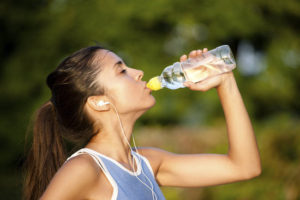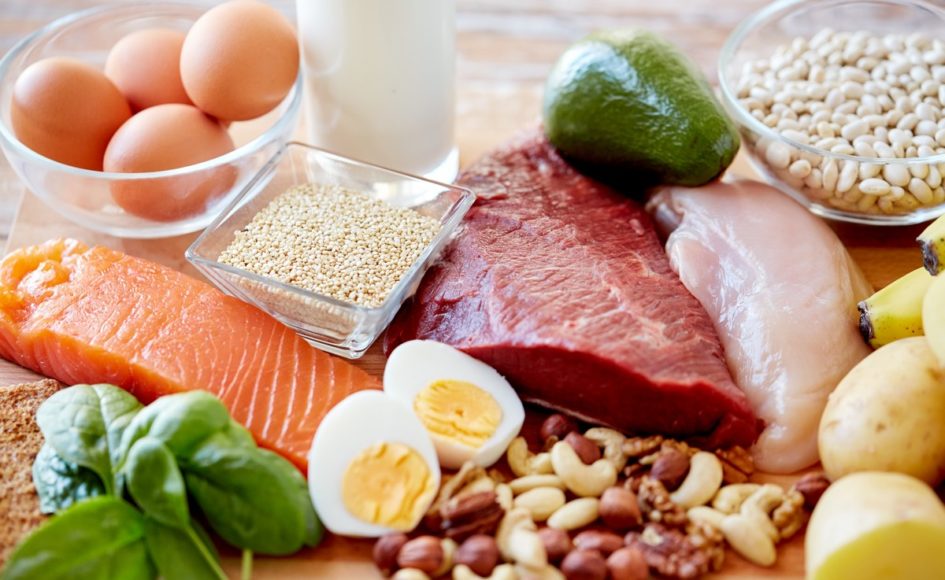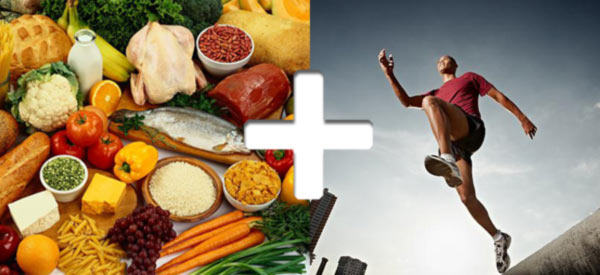Unlock your workout potential with effective meal planning. Learn how to fuel your body before, during, and after exercise for optimal performance and recovery.
In our last post, we encouraged you to get up and get moving; but, much like how a car can’t run without fuel, your muscles can’t function if you’re also on empty, so this week, we are going to teach you how to keep your engine running properly so that you can exercise at your optimal level.
One small note before we dive into our discussion: the recommendations we provide below are for pre-, during, and post-workout nutrition for a healthy, active, adult population, and protein needs are increased for people that are consistently active. Individuals with chronic health conditions (e.g., diabetes, heart disease, kidney disease) or at certain life stages (pregnancy, adolescence, the elderly) should speak with their doctor and Registered Dietitian first to find out their individualized nutrition needs based on their specific health status before beginning any form of physical exercise.
Pre-workout
“Should I eat before my workout?” This is a common question that someone has when they begin exercising and the answer is often debated as there’s not a clear-cut rule; it depends on the individual. The Academy of Nutrition and Dietetics (AND) recommends you should eat a small meal or snack consisting of proteins and carbohydrates about 1-3 hours pre-workout, depending on how your body tolerates food.1 Carbs give you energy to exercise, while proteins provide your muscles with the right amino acids (the building blocks) so they can perform at their peak. It is best not to eat immediately before or too close to your workout because you may experience some gastrointestinal discomfort since your body is trying to digest the food while your muscles are engaging in the exercise.
If your workout is of low-moderate intensity and for a short duration (less than an hour), you may be fine with skipping out entirely on eating before exercising. However, you should bring some carb-rich snacks with you during the workout in case you feel tired or weak so you’ll have something easy to eat that gives you a quick shot of energy. It is especially important for people that exercise in the morning without eating breakfast to pack some snacks, since their bodies are in the fasted state and without food for many hours.
Some suggestions for pre-workout fuel:
- A peanut butter and banana sandwich (with whole wheat bread)
- Whole grain cereal or oatmeal (choose one that’s low in added sugars) with low-fat milk and fruit
- Scrambled eggs with whole wheat bread
Lighter pre-workout snack options (or to bring with your during workout):
- Plain greek yogurt with berries or other favorite fruits
- Apple with nut butter
- Handful of nuts and raisins (two parts raisins: one part nuts), or nuts and dried fruits
- 1-2 hard-boiled eggs
- Granola bar (choose one that’s low in added sugars and saturated fats)
- Whole grain crackers with peanut butter
Stay Hydrated!
Exercise causes an elevation in body temperature, which results in your body producing sweat in order to get rid of the excess heat. When sweat evaporates, it allows your body to cool down resulting in substantial water and some electrolyte loss during exercise. It is very important to stay hydrated during your exercise to restore the water loss!

Listed below are guidelines from The American College of Sports Medicine (ACSM) regarding hydration and exercise.2
Hydration before exercise:
- Drink 2-2.5 cups (16-20 fl oz) of water at least four hours before exercise
Hydration during exercise:
- Drink about 1 cup (3-8 fl oz) of water every 15-20 minutes when exercising for less than an hour
- If you’re exercising for more than an hour, drink about 1 cup (3-8 fl oz) of a sport drink (with electrolytes) every 15-20 minutes
Remember to drink water throughout your workout and try to avoid drinking water only when you feel thirsty. Thirst signals that your body is headed toward dehydration and is not suggested to be used to monitor hydration status. The above fluid intake guidelines may vary based on factors that affect your level of sweating such as air temperature, intensity of your workout, and body size; thus, be aware of your fluid loss and hydrate accordingly. Also, make sure to drink adequate amount of water after exercise to replace your fluid loss as well.
Post-workout
To help your muscles recover and repair after an intensive workout, it is recommended by the AND and ACSM for you to eat a post-workout meal rich in high-quality proteins and carbs within two hours of completing the workout.3 Your body uses stored energy (glycogen) in your muscles during your workout, so eating carbs help to replenish the nutrients that were lost. Consuming proteins post-workout is essential to rebuild and repair your muscles.
Some suggestions for post-workout fuel:
- Homemade post-workout smoothie (with a high-quality protein source, and a good ratio of fruits and other ingredients like the combinations in this guide)
- Low-fat chocolate milk
- Plain greek yogurt with berries or other favorite fruits
- Whole grain wrap with turkey (or egg) and veggies
- Pita bread and hummus
- Small bowl of rice and beans
- A plant-based protein source with some whole grain carbs
Though it is important to consume more protein when you’re active, eating extra protein than your body needs does not help increase your muscle mass and strength. So, be cautious of consuming protein shakes or protein supplements; they are not necessary if you are consuming adequate amount of proteins from your diet. Not only can excess protein intake cause weight gain, but it could be harmful to your body, as it puts more stress on the kidneys to eliminate the waste products of protein metabolism. Also, there is no evidence that show protein supplements are superior to foods that contain high-quality proteins.

Beware of the post-workout treat.
Some people feel hungry after their workouts and may be tempted to reward their hard work with a big meal or sweet treat. But be careful of what you’re eating after your physical activity, as the calories can add up. Also, individuals often overestimate the number of calories burned via exercise and end up consuming additional calories, which may end up promoting unwanted weight gain.4 For example, walking one mile might seem a lot to some people that have just started exercising, but it only burns around 100 calories. If you want to reward yourself after a challenging workout, get a manicure/pedicure or skincare treatment, watch a movie, or splurge on something nice for yourself. It is best to stick to having a nutrient-dense post-workout meal in an appropriate portion size. And if you were planning to eat a regular meal shortly (2-3 hours) after the completion of your workout, just skip the post-workout meal or have a small snack instead.
How are you currently fueling your workout? Are there any changes you would like to make? Share with us in the comments below.
References:
- Timing your pre- and post-workout nutrition. Academy of Nutrition and Dietetics. https://www.eatright.org/resource/fitness/exercise/exercise-nutrition/timing-your-nutrition
- Selecting and effectively using hydration for fitness. American College of Sports Medicine. https://www.acsm.org/docs/brochures/selecting-and-effectively-using-hydration-for-fitness.pdf
- Position of the Academy of Nutrition and Dietetics, Dietitians of Canada, and the American College of Sports Medicine: Nutrition and athletic performance. Medicine & Science in Sports & Exercise. 2016;48:501 https://journals.lww.com/acsm-msse/Fulltext/2016/03000/Nutrition_and_Athletic_Performance.25.aspx
- 3 Basic Tips to Avoid Weight Gain with a New Exercise Regimen. Academy of Nutrition and Dietetics. https://www.eatright.org/fitness/exercise/exercise-nutrition/3-basic-tips-to-avoid-weight-gain-with-a-new-exercise-regimen

Guest post by Helen Cheng, Dietetic Intern



0 Comments